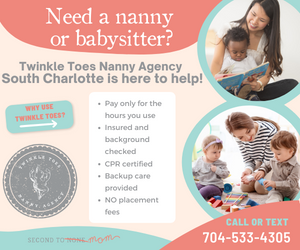This article was previously published on Atrium Health's Daily Dose
What type of health care do women need in their 30s and 40s after having kids and before going through menopause? Gynecologist Dr. Jennifer Hong explains.
If you're a woman who's done having children or are not planning to have children, but you're not yet in menopause, how often do you need to see your gynecologist? Dr. Jennifer Hong, an obstetrician-gynecologist at Atrium Health Women's Care SouthPine OB-GYN, shares how often to see your provider and what you'll cover during those appointments.
Wellness and prevention in your 30s and 40s
A woman's body goes through many changes during her 30s and 40s. That's why it's essential to be connected with a health care provider who knows you and your health history.
"It's important for women in their 30s and 40s to see a gynecologist every year because our bodies are changing a lot during this time," says Hong.
She recommends women in this age group see their gynecologist yearly for a comprehensive health maintenance exam. This includes a Pap smear every three to five years to screen for Human papillomavirus (HPV) and cervical cancer. You may need more frequent Pap smears if your test results are abnormal.
"While we don't do Pap smears every year, we still do a lot of important preventive care at these visits," says Hong. "This includes a mental health and depression screening, clinical breast exam, and a pelvic exam where we check the uterus, ovaries, vagina and vulva."
During this yearly appointment, your gynecologist will review any health screenings you may need, such as a colorectal cancer screening or mammogram. You'll also discuss contraception, if needed.
"Some people think it's not possible to get pregnant at a certain age, but it's still possible to get pregnant until you go through menopause," says Hong.
Bone health is also important in a woman's 30s and 40s.
"We talk about risk reduction and preventive care for osteoporosis," Hong says. "We ensure you're getting adequate vitamin D supplementation, dietary calcium and exercise."
You'll also discuss vaccinations, including the HPV vaccine, if you haven't already been immunized.
Weight gain in your 30s and 40s
"The most common change I hear from patients is weight gain or difficulty losing weight," says Hong. "Many people describe eating a healthy diet and exercising regularly, but not being able to keep the weight off."
For some people, it's necessary to do more activity than they're used to for weight management, she says.
This could be taking the stairs instead of the elevator or walking during your lunch break. She also recommends incorporating strength training to build muscle, which can help boost your metabolism.
"Nutrition is also really important," says Hong. "There are a ton of fad diets out there and I don't ascribe to any particular one. But we do know that limiting refined sugars and simple carbs can be helpful. For some women, limiting animal proteins is helpful as well. Those are discussions we have with our patients and we can refer them to a nutritionist if needed."
Your menstrual cycle in your 30s and 40s
"A lot of women in this age group notice their menstrual cycle might change," says Hong. "Your cycle might shorten so you're having your period more frequently or it may become irregular."
If you have irregular periods, it's important to mention them to your provider so they can monitor your health.
Once you've gone 12 months without a period, you're considered to be in menopause.
Other health symptoms in your 30s and 40s
As your hormones change as you age, it's normal to experience changes in your health. The following symptoms warrant a trip to your doctor, says Hong: An increase in menstrual bleeding, pain with periods, passing clots during your period, missing your period for more than three months in a row, unmanageable hot flashes, pain during intercourse, vaginal dryness and unexplained pain and weight loss.
Your doctor can screen for underlying health issues or provide ways to alleviate uncomfortable symptoms.
Stress management in your 30s and 40s
A woman's 30s and 40s can also be mentally and emotionally demanding.
"This is a time of life when we tend to be at the peak of our careers, but we also may be raising young children or caring for aging parents," says Hong. "As women, we tend to put our own needs aside because we're busy tending to everyone else. That's why I encourage people to take time for themselves."
She encourages women to stay up to date on their health screenings, make time for hobbies, spend time with friends, travel, go to the theater, play sports or do other activities they enjoy.
If you're having difficulty managing stress, talk to your gynecologist. They can refer you to a counselor or therapist or discuss mediation for anxiety or depression if needed. For more complex mental health concerns, they can refer you to a psychiatrist.
Each life stage brings new joys and challenges. Staying connected with a health care provider like a gynecologist can help you stay mentally and physically healthy for the long term.






















